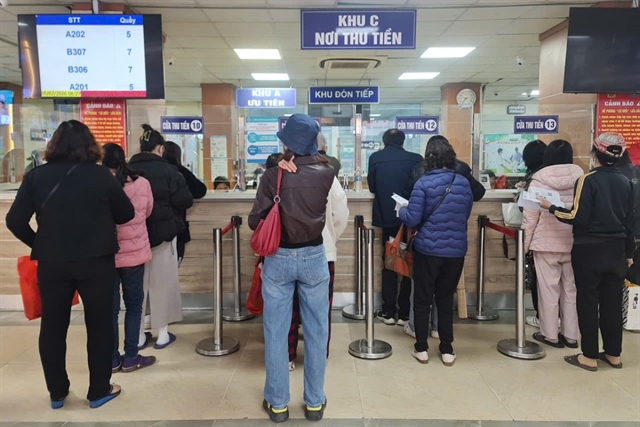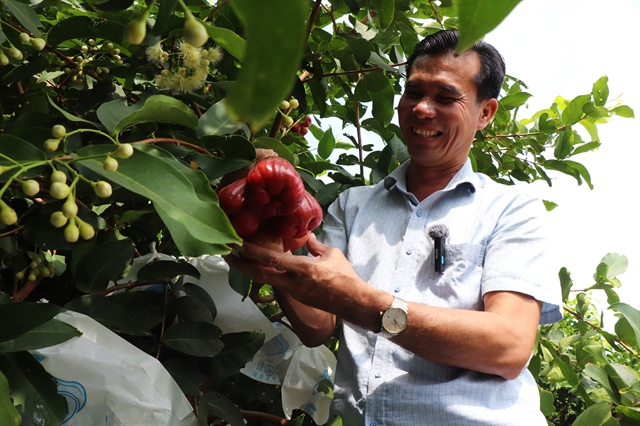 Society
Society

Việt Nam has made many achievements in the Gender Development Index, the Gender Empowerment Index, the Gender Inequality Index and many gender-related issues in Việt Nam are still being improved. However, current gender roles in Vietnamese families are still unequal, which can be detrimental to women.

|
| Female street vendors in Hà Nội. — Photo: vietnamnet.vn |
HÀ NỘI — Việt Nam has made many achievements in gender development and many gender-related issues in Việt Nam are still being improved. However, current gender roles in Vietnamese families are still unequal, which can be detrimental to women.
This statement was made by Trần Quang Tiến, director of Việt Nam Women's Academy, at an international scientific conference titled "Gender roles in the modern family" which was co-held in Hà Nội on Friday by the Việt Nam Women's Academy and Colombo Plan's Gender Affairs Programme.
In the context of international integration and the strong development of science and technology, changing family functions and gender roles also create many new issues that need research, Tiến said at the opening ceremony.
The conference is an academic forum for sharing scientific research and discussing issues related to gender roles in implementing modern family functions; enhancing women’s power and gender in care, education,and protection for children; promoting men’s participation in housework, and making policy recommendations to promote gender equality in the family and family sustainability.
In response to the new normal context, the conference was held both online and offline connecting scholars from the US, Australia, Japan, South Korea, China, Indonesia, Bangladesh and Sri Lanka.
The conference also contributes to promoting cooperation among scientists of higher education institutions and organisations domestically and internationally.
Speaking at the event, Dương Kim Anh, deputy director of Việt Nam Women's Academy, said family is the fundamental cell of society, an important environment to form, nurture and educate human personality.
"Family preserves and promotes a fine traditional culture as well as creates human resources for the cause of the Fatherland construction and protection," Anh said.
"Over time, the structure and gender relations in the family have changed, but the family has always been an important and indispensable social institution in the socio-economic development of the country."
She said in addition to positive socioeconomic impacts in the reform process, Vietnamese families are facing many challenges such as epidemics, climate change and natural disaster risks, underemployment, domestic and international labour migration.
Women and family members, therefore, have to deal with difficulties in implementing family roles and functions.
In fact, there are still many shortcomings related to the implementation of gender roles in the family such as: unequal participation in housework; gender stereotypes, woman's roles regarding housework, taking care of the family and raising children are considered the tasks of woman.
Anh also said gender inequality in labour, employment and income and the women's decision-making power in the family is still limited, adding that domestic and other forms of gender-based violence still exist.
Inequality in the implementation of gender roles has a negative effect on family development and limits gender equality progress.
There are still many gaps in research that need to be further discussed and studied.
She emphasised that promoting the good implementation of gender roles in the family is to promote gender equality and to implement national and international laws and policies.
"We all can agree that the ever-changing gender roles in our society influence the lifestyles of a modern family, particularly the children," said Phan Kiều Thu, secretary general of the Colombo Plan.
The recent coronavirus and lockdown period has had a tremendous impact on gender roles within families, she said.
According to a recent survey, conducted by the Office of National Statistics in the United Kingdom, the gap in unpaid work (activities such as childcare, adult care, house work and volunteering) between men and women reduced slightly during the lockdown.
According to the survey, women's role in unpaid work has reduced by 20 minutes a day, while men's role in unpaid work has increased 22 minutes a day.
"Since the concept of family has changed in the past 20 years, we need to take a closer look at how families have developed and adapted themselves to the changing gender roles," said Thu.
"We hope that through the Colombo Plan, member nations can focus their attention on addressing the challenges that hinder a balance of work and family while establishing new mechanisms for improved lifestyles." — VNS




